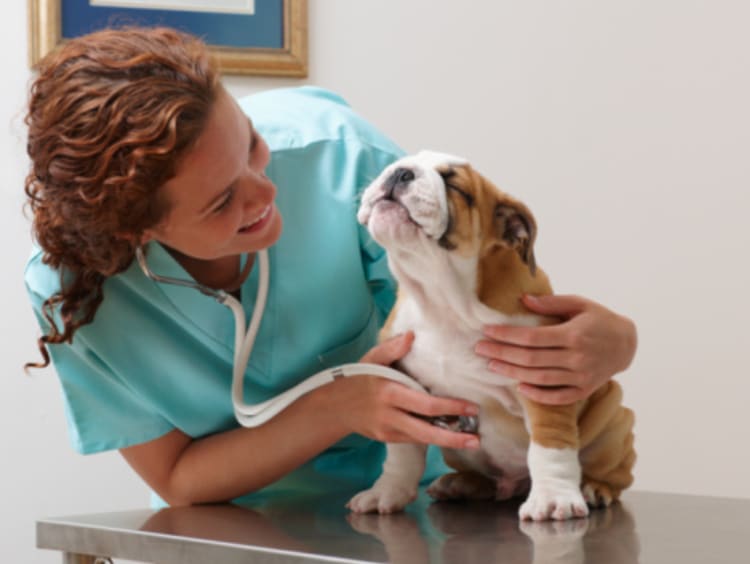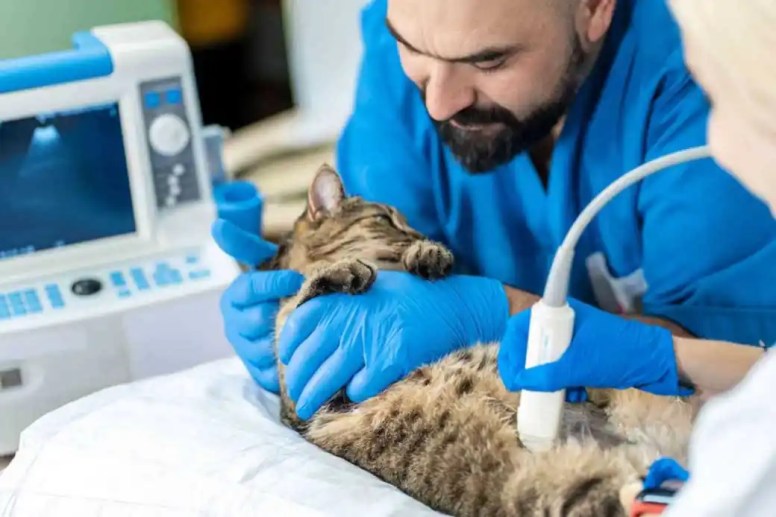Selecting the most effective Veterinarian Enterprise for Timely and Compassionate Pet Care
Selecting the most effective Veterinarian Enterprise for Timely and Compassionate Pet Care
Blog Article
Inoculation Guidelines From Your Relied On Vet
Vaccination standards provided by your trusted vet play an important function in securing your family pet's health and well-being. Core vaccines are essential for all pets, while non-core injections can be tailored to environmental direct exposures and certain way of livings. Understanding the subtleties of inoculation timetables, which begin as early as 6 to 8 weeks, is necessary for optimal protection. Additionally, addressing typical misunderstandings bordering vaccines can further boost pet dog owners' self-confidence in these safety nets. As we explore these important facets, it comes to be significantly clear why normal examinations with your veterinarian are essential for notified decision-making.

Value of Vaccinations
Inoculations play a crucial role in protecting pets against a series of avoidable illness. By promoting the immune system to acknowledge and deal with specific virus, injections dramatically decrease the occurrence of contagious illness that can affect a pet dog's wellness and longevity. Not just do inoculations shield individual pets, yet they likewise contribute to herd resistance, therefore reducing the total frequency of conditions in the animal populace.
Timely inoculations help to mitigate the spread of diseases such as rabies, parvovirus, and distemper, which can have extreme repercussions for both pet dogs and people. Inoculations are often a requirement for boarding centers, brushing services, and pet parks, making them essential for those that wish to socialize their pet dogs.
Core Injections for Animals
While the details inoculation needs of animals can differ based on specific aspects, core injections are globally advised to protect versus one of the most serious and typical illness (Pet Health Checkup). Core injections are those regarded important for all animals, no matter their lifestyle or geographic location, as they secure versus extremely contagious and possibly fatal illnesses
For dogs, the core vaccinations include those for canine distemper, parvovirus, adenovirus (hepatitis), and rabies. Adenovirus can result in liver illness, while rabies is a zoonotic condition that postures a risk to both humans and pets.
In felines, core vaccinations encompass feline panleukopenia, feline calicivirus, feline herpesvirus (rhinotracheitis), and rabies. Feline panleukopenia is a very transmittable viral illness that influences the immune system and intestinal tracts. Calicivirus and herpesvirus are significant contributors to upper breathing infections in felines, while rabies remains an important concern for public health.
Consult with your veterinarian to guarantee your pet dogs receive their core inoculations on time.
Non-Core Vaccines Explained
Non-core vaccines are customized to deal with particular dangers connected with a pet dog's atmosphere, direct exposure, and way of life to certain diseases. Unlike core vaccines, which are widely suggested for all pets, non-core vaccinations are taken into consideration based upon specific situations. These vaccines are specifically essential for pet dogs that might experience distinct virus due to their geographical location, traveling routines, or tasks.
Instances of non-core vaccines consist of those for Bordetella bronchiseptica, which is linked image source to kennel coughing, and Lyme disease, triggered by ticks. Family pets that often engage with other animals, such as those in boarding facilities, pet parks, or grooming environments, might take advantage of Bordetella vaccination. If you live in an area where Lyme illness is widespread, vaccinating against this illness can be a sensible selection for outdoor-loving dogs.
Various other non-core vaccinations might include those for leptospirosis, canine influenza, and feline leukemia, relying on the details risk elements present. It is important to have a comprehensive conversation with your vet regarding your pet's way of living and the possible requirement for these vaccines, guaranteeing a tailored vaccination approach that finest protects your hairy good friend.
Vaccination Set Up Introduction

As pet dogs mature, it is essential to follow the suggested booster vaccinations. Pet Health Checkup. For grown-up pets, core vaccinations are usually given every one to 3 years, depending on the certain injection and neighborhood policies. Non-core vaccinations may be encouraged based on way of living aspects and regional condition prevalence, necessitating a customized strategy
Regular vet exams are vital for updating vaccination schedules. Your veterinarian can give advice on one of the most appropriate immunizations for your family pet, factoring in age, health and wellness standing, and ecological dangers. By staying aggressive and notified, pet dog proprietors can guarantee their fuzzy companions receive timely and reliable vaccinations, therefore guarding their health and wellness and health throughout their lives.
Usual Misconceptions About Vaccinations
Misconceptions regarding family pet vaccinations can lead to complication and unwillingness amongst pet dog proprietors concerning the immunization process. One widespread myth is that vaccines are unneeded for interior animals. While it holds true that indoor animals face lower threats, they are not entirely unsusceptible to conditions, as microorganisms can be presented with different ways, consisting of human apparel and other pet dogs.
An additional mistaken belief is that vaccines can cause the illness they intend to avoid. In truth, most vaccinations have inactivated or undermined virus, which can not create disease in healthy and balanced pets. Some animal owners also think that their pet dogs ought to not be immunized if they are currently healthy; nonetheless, vaccinations are an aggressive step that aids protect against the beginning of disease.
Furthermore, several family pet owners are afraid that vaccinations will result in lasting health problems. While negative effects can occur, they are normally moderate and short-term. The benefits of vaccination-- safeguarding family pets from possibly life-threatening illness-- much exceed the risks. Comprehending these typical myths is critical for accountable family pet ownership and ensuring More Help the wellness and safety of your hairy companions. Always consult your veterinarian for precise info tailored to your pet dog's details requirements.
Final Thought
In recap, adherence to inoculation guidelines is vital for ensuring the health and wellness and durability of animals. Resolving common myths bordering vaccinations additionally reinforces the significance of informed decision-making in pet care.
Not just do vaccinations protect specific pets, but they likewise contribute to herd resistance, therefore minimizing the general frequency of diseases in the family pet populace.
Misunderstandings regarding family pet vaccinations can lead to complication and hesitation among animal owners concerning the immunization process. While it's real that interior animals encounter lower dangers, they are not completely immune to diseases, as virus can be introduced via various means, including human clothing and other pet dogs.
Some animal owners also think that their animals need to not be immunized if they are already healthy and balanced; however, vaccinations are a positive step that he has a good point assists protect against the start of ailment.
The benefits of inoculation-- protecting pet dogs from possibly lethal conditions-- much outweigh the dangers.
Report this page